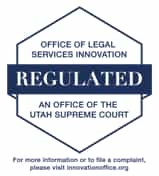Offshore Voluntary Disclosure & Foreign Bank Accounts
Discover How a Tax Attorney Can Protect Your Interests
Since 2009, the IRS has been offering taxpayers who have undisclosed foreign financial accounts the opportunity to “come clean” under its Offshore Voluntary Disclosure Initiative (OVDI). The OVDI program has been slightly revised over the last three years, but it basically allows certain taxpayers the opportunity to gain clearance from criminal prosecution and civil penalties by paying a one-time FBAR (Report of Foreign Bank and Financial Accounts) penalty based on the foreign account balances, as well as penalties for accuracy and failure-to-file based on the tax underpayment for the prior 8 years.
Interested in learning more? The Utah tax lawyers at Pearson Butler can guide you through filing requirements and programs available to resolve past delinquencies. Call (800) 265-2314 to get started.
Benefits of Using the Offshore Voluntary Disclosure Program
Taxpayers with undisclosed foreign accounts or entities may benefit in several ways by making a voluntary disclosure, including:
- Becoming compliant
- Avoiding substantial civil penalties
- Eliminating the risk of criminal prosecution
Making a voluntary disclosure also provides the opportunity to calculate, with a reasonable degree of certainty, the total cost of resolving all offshore tax issues.
Taxpayers who do not submit a voluntary disclosure run the risk of detection by the IRS and the imposition of substantial penalties, including the fraud penalty and foreign information return penalties, as well as an increased risk of criminal prosecution. The IRS is actively engaged in discovering the identities of those with undisclosed foreign accounts. This information is increasingly available to the IRS under tax treaties and through submissions by whistleblowers, and this information will become more available as the Foreign Account Tax Compliance Act (FATCA) and Foreign Financial Asset Reporting (new IRC §6038D) become effective.
OVDI Filing Requirements
The IRS has recently increased the reporting requirements for taxpayers with foreign accounts and assets. The IRS requires a variety of disclosure forms, including FBARs, Form 5471, Form 3520, and Form 8938. The tax attorneys at Pearson Butler advise clients across Utah on their current obligations to file these forms and counsel clients on the avenues available to resolve past delinquencies with the best possible results.
If you would like more tax information on your specific situation as it relates to the OVDI or any foreign bank accounts, contact a seasoned Utah tax attorney at Pearson Butler.





.jpg)








